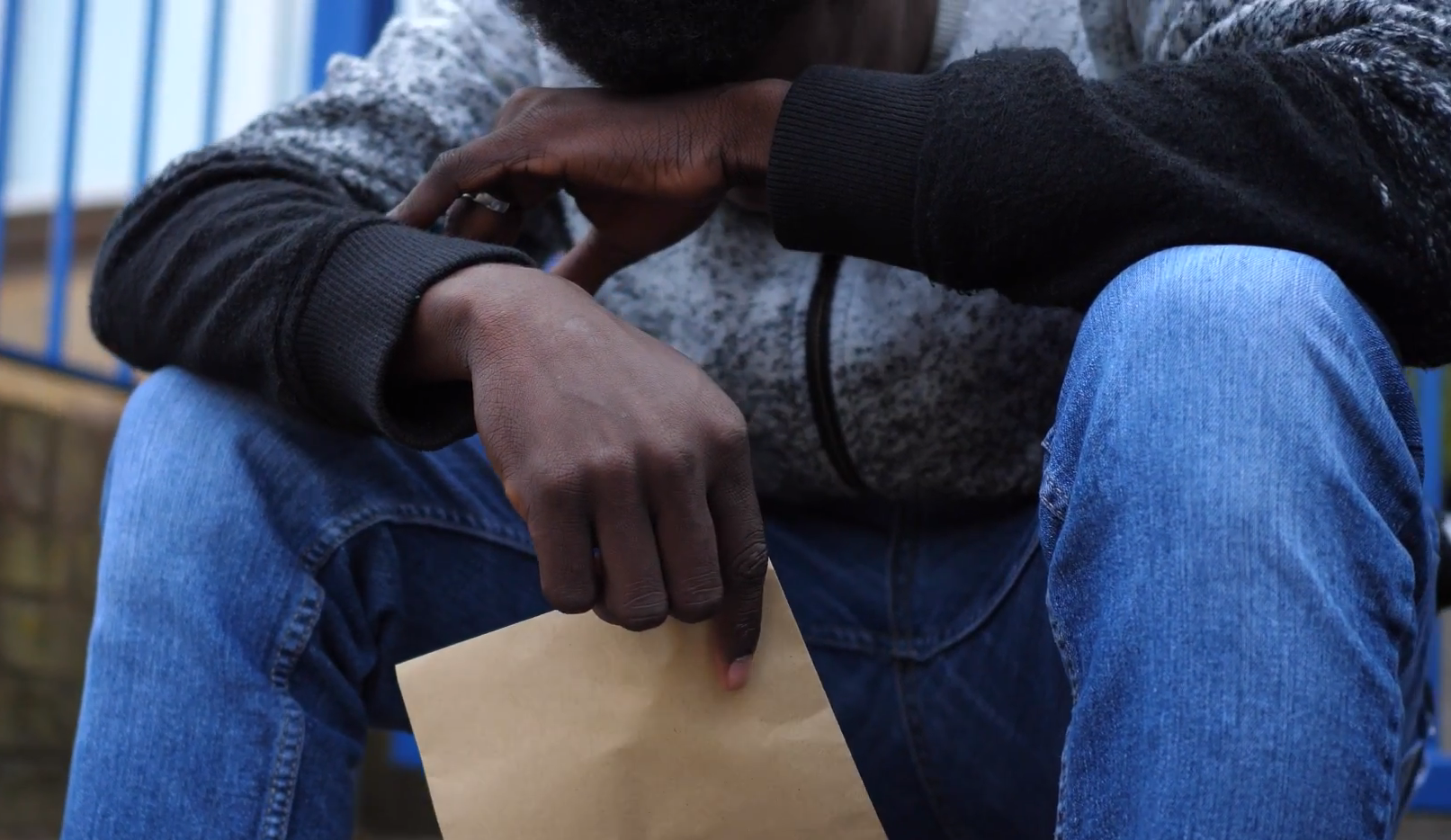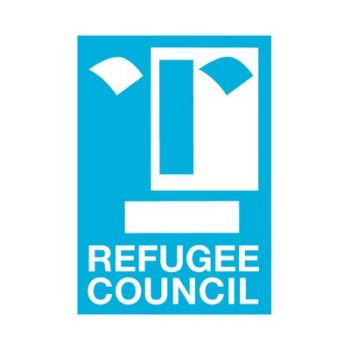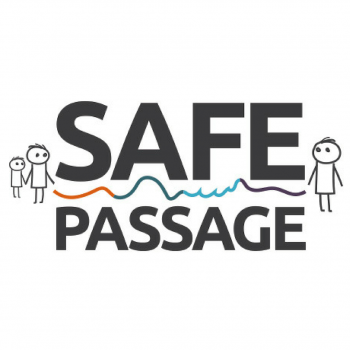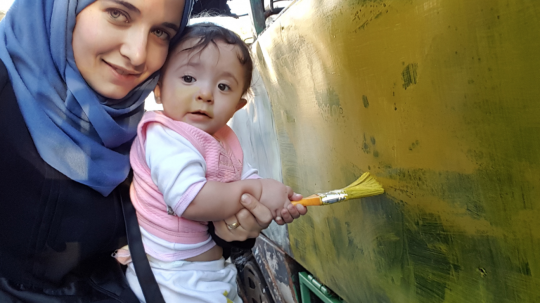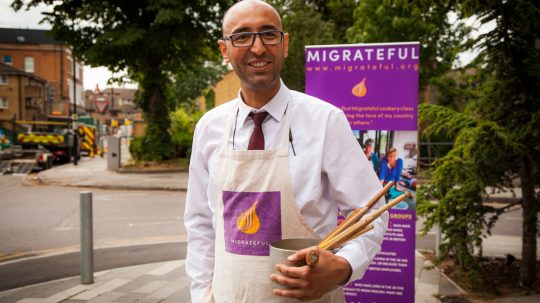“It’s hard to stay without your family for [nearly] five years,” says Tajedin Asil. In 2016, as a lone 15-year-old, he made a perilous journey from his conflict-stricken home town in Sudan to the UK.
Now 19 and living as a refugee in Birmingham, Tajedin says he is “happy” to be in the relative safety of the UK. But, speaking slowly and cautiously over a mid-morning video call, it seems clear his experiences and separation from his loved ones have taken a toll. “You can’t live without your family … you feel dead,” he says.
Currently, the UK’s immigration rules allow adult refugees to sponsor immediate family members for a visa to join them – but not child refugees. A report published by human rights groups in January this year revealed the “devastating” effects that family separation has on children and young people. More than 75,000 people have signed a petition calling on the government to amend its rules. But as of 20 June, there is no indication that the Home Office’s policy will change.
If you didn’t join … sometimes they try to kill someone in your family. And then if you [still] didn’t join, they kill you as well
Tajedin
Tajedin comes from the village of Kutum in North Darfur – an area which has been in the throes of war for more than 17 years. Former president Omar al-Bashir, who had been the country’s longest serving leader until he was deposed in a coup d’etat last year, has been indicted for war crimes after carrying out a campaign of ethnic cleansing on the country’s non-Arab population.
On 6 June 2016, Tajedin’s dad arranged for him to make the journey to Europe – leaving behind his mother, sister and two brothers – amid fears he would be forced to join the Janjaweed militia. “If you didn’t join … sometimes they try to kill someone in your family. And then if you [still] didn’t join, they kill you as well,” he says. “That’s why I left.”
He was taken by car across a well-travelled route through northern Africa with the aim of eventually taking a boat across the Mediterranean to Europe. This treacherous sea journey has claimed the lives of an estimated 19,164 people since 2014.
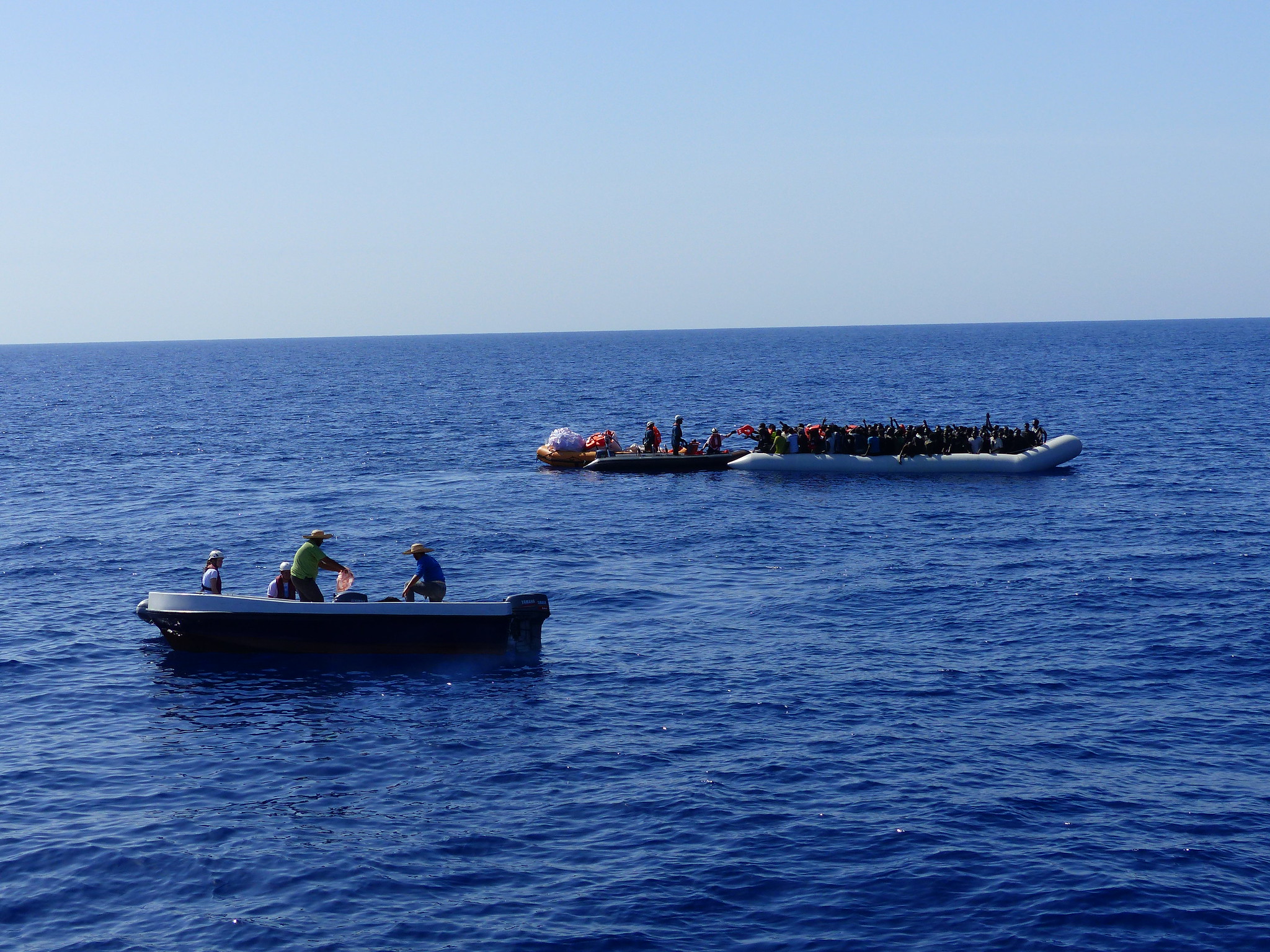
A boat full of people crossing the Mediterranean sea. Credit: Flickr
He describes being transferred by smugglers from warehouse to warehouse in Chad and Libya, being locked inside each one for weeks and months at a time. All the while he was kept in the dark about when exactly he would make his boat journey. “Then they come to you and tell you: ‘Today it’s ready to move,’” he says.
From Italy, Tajedin eventually journeyed to the “Jungle” camp in Calais – where he stayed for months before being found by a Home Office worker who brought him to the UK to claim asylum. Initially, arriving in the UK brought with it more challenges. While his asylum claim was being processed, he spoke of having to sleep on the floor for months while being housed in a one-bedroom flat with five other people and not enough beds.
He describes feelings of boredom and loneliness while being stuck without family. “You miss their smiling,” he says. Poor phone reception means that it is difficult for him to have conversations with them without the line cutting out after two or three minutes, he adds.
A Home Office spokeswoman told EachOther that it provides a safe, legal route to bring families together through its refugee family reunion policy, and has reunited over 29,000 family members in the last five years.

Home Secretary Priti Patel. Credit: Flickr
But added: “We must not create dangerous incentives for children to be encouraged, or even forced, to leave their families and risk dangerous journeys in the hopes their relatives can join them later – this plays into the hands of criminal gangs who exploit vulnerable people and undermines our safeguarding responsibilities.”
For Tajedin, this argument doesn’t hold water. “Sometimes, things happen. [Parents] have a choice: you need to save your son or … you don’t want to save them,” he says. “I’m 100% sure they can’t send their child if [they are] not in danger.”
Now officially an adult, Tajedin has been able to apply to sponsor family members to join him but, after a years of waiting, this process has likely ground to a halt amid the pandemic.
There is discretion to grant visas to the family members of child refugees outside the Immigration Rules in exceptional circumstances. But Judith Dennis, the Refugee Council’s policy manager, said that she knows of only a couple of instances where this has been granted. Most cases having to go before an immigration tribunal which can take a “long time” and many lawyers are unaware of this option, she says.
“We think that is wrong,” she says. “There is nothing exceptional about children wanting to be reunited with their family members.”
She adds: “We’d like the Home Office to just change the rules. We don’t need to be clogging up Parliament’s time with this,” she said. A private members bill introduced in Parliament in 2018 was already met with “huge cross party support”.
Dennis said that there is currently no official data as to how many unaccompanied child refugees in the UK are in the same situation Tajedin was – but the council’s report details the experiences of at least 12. The report also states that “there is almost no evidence” to suggest enhancing refugee family reunification rights will have a bearing on the number of people who try to seek asylum.
Meanwhile, child protection experts have warned that there “is clear evidence that separating children from their families causes long-lasting psychological, health, social and developmental damage”.
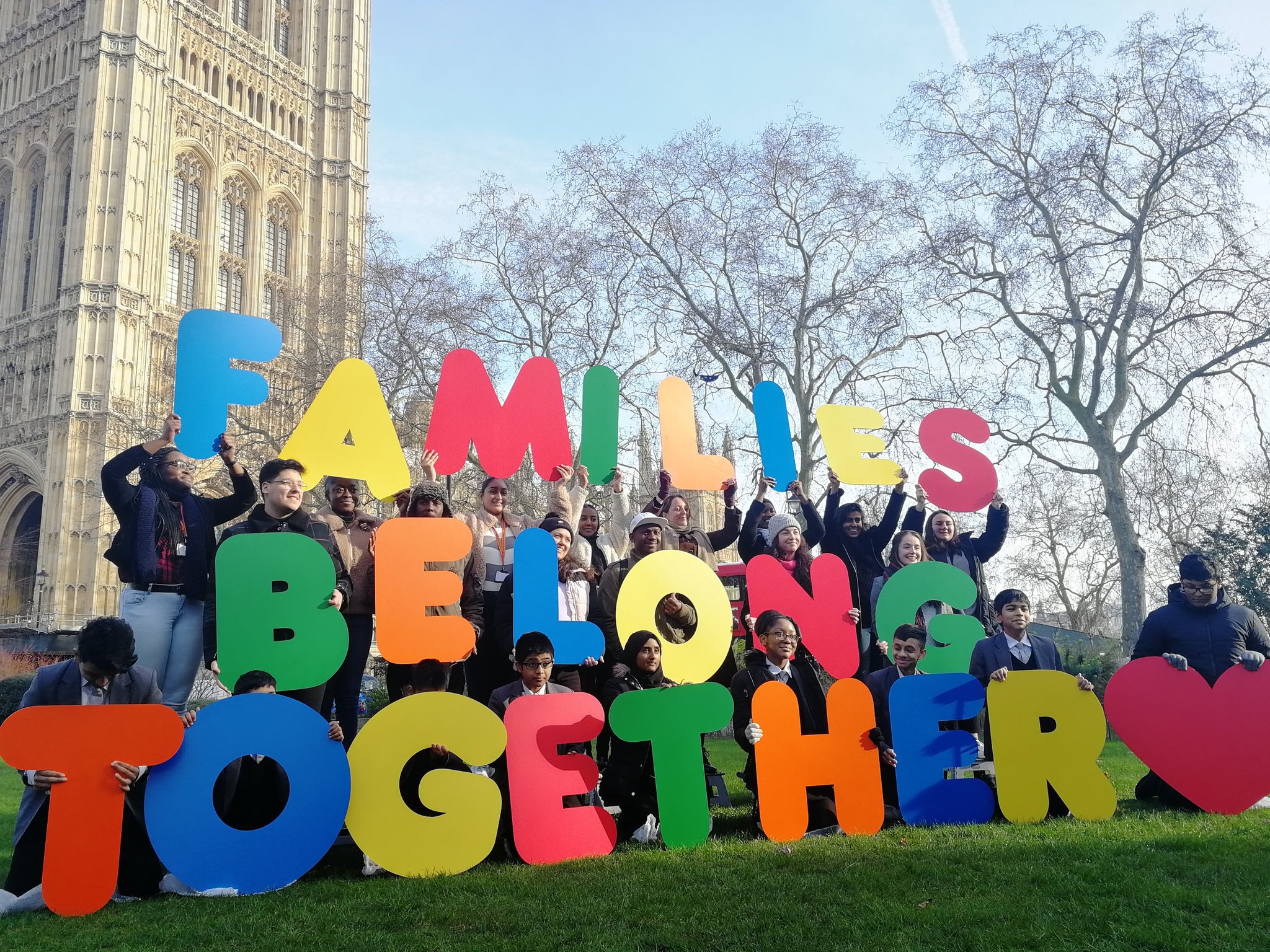
Children protest Home Office’s refugee family reunification rules. Credit: Refugee Council
Tajedin’s story is one of incredible resilience. He credits this in part to his passion for dancing. “Dance is part of my life … If I didn’t dance my day is not complete,” he says. “When I dance, I feel like calm down and happy and I have more energy, you know what I mean?”
Since gaining refugee status, he is working in a shop while completing his studies to fulfil his dream of becoming a policeman. His dream may come as a surprise when he readily admits his most common encounter with officers, from Kutum to Calais, was being beaten up by them. But it is these experiences that make him determined to spark a change and “help people”.

